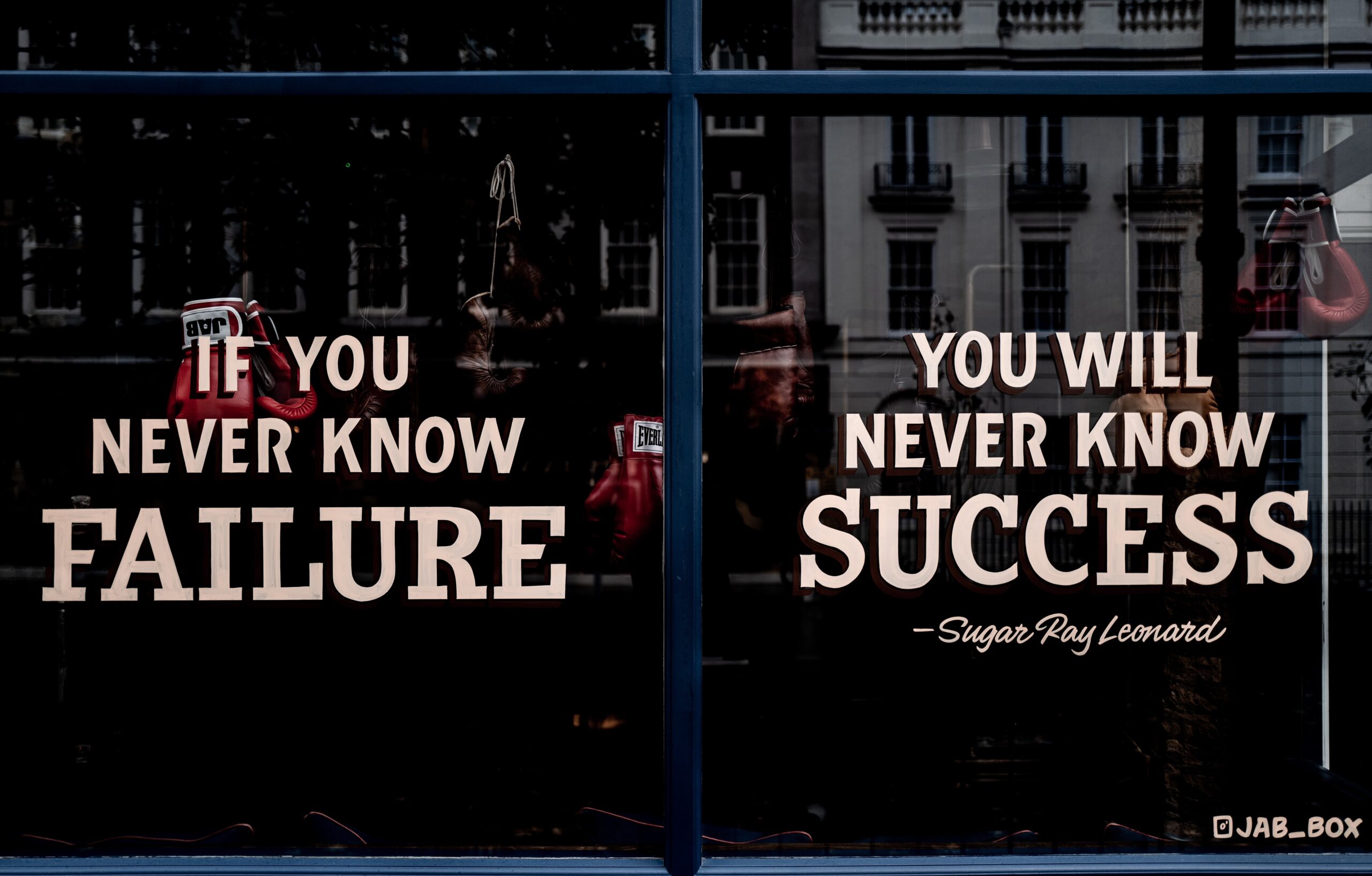Why Learning From Failure Is The Key To Success
The journey to success is often paved with failures. In life, it’s essential to recognize that failure is a crucial aspect of the learning process, and it’s how we can develop personal growth and resilience (too bad they didn’t teach us this in school!).
By understanding the key to failure, we can learn to harness its power to propel ourselves forward and turn it into a stepping stone toward success.
In this article, we discuss the different dimensions of failure, its impact on future success, and the importance of developing a growth mindset.
Additionally, we’ll highlight the role of failure in entrepreneurship and examine the science behind it to reveal how we can make the most of our inevitable missteps.
Key Takeaways
- Embracing failure is crucial for personal growth and progress towards success
- A growth mindset enables one to learn and adapt from setbacks
- Failure plays a significant role in entrepreneurship, offering valuable lessons and insights
Don’t Miss Any Updates. Each week I’ll send you advice on how to reach financial independence with passive income from real estate.
Sign up for my newsletterWhat Is The Fear of Failure?
Dealing with Fear of Failure
Fear of failure, or atychiphobia, is an irrational fear of failing, often related to anxiety or depression. To overcome this and increase the chance of success, it’s essential to cultivate a confident, knowledgeable, and clear mindset.
#1. ID cause
The first step is to start by acknowledging your fear and identifying the root cause of it. This can be accomplished by reflecting on your past experiences, looking for patterns of self-sabotage, or seeking professional help.
For instance, I used to have a fear of flying which started after having a claustrophobic incident during an MRI scan.
#2. Set goals
Next, establish small, achievable goals. Setting and achieving these goals builds confidence and resilience to tackle larger challenges. Remember to celebrate your wins, no matter how small they may seem.
This positive reinforcement will motivate you to continue pushing past boundaries and embracing the possibility of failure.
Embracing the Possibility of Failure
It is important to recognize that failure is an inevitable part of life and can often lead to valuable learning experiences. Rather than fearing it, view it as an opportunity for personal growth.
One way to do this is by reframing your definition of success and failure. Focus on the progress made, the skills acquired, and the knowledge gained instead of only the outcome.
This way, you can appreciate the journey, not just the destination.
This is the entire basis behind the book Chop Wood Carry Water.
#3. Support network
Last but not least, develop a support network. Surround yourself with people who embrace your goals and are understanding of your fears. Sharing your experiences, struggles, and triumphs with others can help you see the value in taking risks and facing the possibility of failure.
Stepping Out of the Comfort Zone
Embracing New Things
Your comfort zone is a behavioral state in which you’re at ease and experience a steady performance level. This state might feel safe, but it can also hold you back from growing and reaching your potential.
To venture beyond your comfort zone, you must be open to embracing new experiences and challenges. This means being ready to face the unknown and accept the risk that comes with it.
When I first started investing in real estate syndications, I had an EXTREME fear of failing, which caused me to delay investing for several years. In the end, I’m glad that didn’t stop me as now it’s my main vehicle down the road to financial freedom.
Check out this video to learn more about how syndications work:
When you face a new situation or decision, take the time to:
- Educate yourself: Learn as much as possible about the new thing or challenge you’re facing.
- Assess the risks: Weigh the pros and cons and consider whether it’s worth stepping out of your comfort zone for this particular situation.
- Be prepared: Develop a plan to tackle the new challenge, and be ready to adapt it as needed.
Handling the First Time
Another aspect that may lead to failure is mishandling the “first time” when attempting new things. The first time you try something new, it’s natural to feel anxiety, fear, or insecurity.
However, it’s important to know that these feelings are normal and will diminish as you gain experience and expertise.
Here are some tips for handling the first time outside your comfort zone:
- Acknowledge your feelings: Recognize your emotions, and understand that they are normal in unfamiliar situations.
- Take small steps: Break the new challenge into smaller, manageable tasks, and approach them one at a time.
- Seek support: Reach out to friends, family, or professional networks for guidance, reassurance, or advice.
- Learn from the experience: Reflect on what worked and what didn’t, and use the gained knowledge to improve your approach next time.
By stepping out of your comfort zone cautiously and with the right mindset, you’ll increase your chances of success and minimize the risk of failure.
Join the Passive Investors CircleLessons from Successful Figures
The Struggles of Thomas Edison
Thomas Edison, one of the most successful inventors in history, faced countless failures before achieving success. It took him thousands of attempts to make the electric light bulb work.
This proves that perseverance is essential for success and teaches you that failures should not discourage you.
Edison once said, “I have not failed. I’ve just found 10,000 ways that won’t work.”
The Failures of Walt Disney
Walt Disney faced numerous setbacks in his early career. Before finding success with Mickey Mouse, Disney was fired from a newspaper for “lacking imagination” and had many of his animation ventures fail.
Despite these obstacles, Disney’s unwavering belief in himself and his dreams pushed him to keep going. This resilience helped him create a global empire that still thrives today.
The Tenacity of Steve Jobs
Steve Jobs, the co-founder of Apple and a significant influence in the technology industry, was no stranger to failure. He was famously fired from Apple in 1985, just to return over a decade later and revolutionize the company.
He didn’t let his dismissal define him. Instead, he founded NeXT, which was eventually acquired by Apple and played a significant role in their future success.
This shows how essential it is to never give up on yourself or your goals, even when faced with unimaginable hardships.
The Importance of a Growth Mindset
When you have a growth mindset, you believe your abilities can improve through continuous effort and learning.
This perspective helps you to view failures as opportunities for growth rather than as indicators of inadequacy.
Consequently, you will be more likely to take on challenges, exert effort, and persist in facing obstacles.
Developing a growth mindset can also encourage you to step outside of your comfort zone and embrace new ideas.
The Role of Failure in Entrepreneurship
As an entrepreneur, you’ll inevitably encounter failure on your journey to success. In fact, 90% of startups and 75% of venture-backed startups fail.
But just like anything else, failure should be embraced as an essential aspect of entrepreneurship. By learning from failures, you can refine your business strategies, become more resilient, and ultimately achieve your goals.
What about small business owners?
Small business owners aren’t exempt from the possibility of failure. Many small businesses face challenges such as cash flow problems, market saturation, and fierce competition.
Even Silicon Valley, known for its disruptive innovations and successful startups, isn’t immune to business failures. The key takeaway here is that failure is common, regardless of the size or location of your business.
Jeff Bezos
Some of the most successful business leaders, like Jeff Bezos, have experienced failure before achieving success. In the early days of Amazon, Bezos made many risky investments, including the infamous Fire Phone.
The failure of the Fire Phone led to a $170 million write-down for Amazon. However, Bezos learned from this failure and used the experience to guide Amazon toward greater business ventures, such as the highly successful Amazon Web Services and Echo.
To effectively use failure as a learning tool in your entrepreneurial journey, consider the following advice:
- Fail fast and fail forward: Adopt a mindset that embraces failure as a stepping stone to success. By failing fast, you can quickly identify what works and what doesn’t, allowing you to make necessary adjustments and move forward.
- Analyze your failures: Take the time to reflect on your failures and understand the root causes. This will help you avoid making the same mistakes in the future and identify areas of improvement.
- Seek mentorship: Reach out to fellow entrepreneurs and business leaders who have also experienced failure. Their insights and advice can be invaluable in helping you navigate potential pitfalls and make better decisions.
Don’t Miss Any Updates. Each week I’ll send you advice on how to reach financial independence with passive income from real estate.
Sign up for my newsletterUnderstanding the Lessons of Failure
Here are some important lessons that failure can teach you.
| Lesson from Failure | Description |
|---|---|
| Developing Resilience | Failure teaches you to persevere and adapt in the face of setbacks, thereby strengthening your ability to recover from future challenges. |
| Teaching Humility | It helps you recognize your fallibility and the need for continuous improvement, fostering a mindset open to learning and collaboration. |
| Highlighting Improvement Areas | Failure allows you to identify gaps in your knowledge or skills, guiding you to focus on areas needing development for personal and professional growth. |
| Fostering Creativity and Innovation | Experiencing failure pushes you to think creatively and try new approaches, often leading to innovative solutions and breakthroughs. |
| Clarifying Values and Goals | Setbacks prompt introspection and reassessment of priorities, helping you align with your true values and make informed decisions. |
The Paradox of Failure
The “paradox of failure” refers to the contradictory notion that failure can lead to success. Rather than viewing failure as a negative outcome, the paradox highlights the idea that failure can teach valuable lessons, fostering growth and improvement.
For example, consider the stories of Albert Einstein, Henry Ford, Jack Ma, and J.K. Rowling. Each of them encountered significant failures in their lives, but those setbacks did not deter them. Instead, they used them as learning experiences that contributed to their ultimate success.
Albert Einstein
Albert Einstein was thought to be a slow learner in school and even failed a university entrance exam. However, his persistence and determination led him to revolutionize the world of physics with his theory of relativity.
Through his early struggles, he developed a deep understanding of complex scientific concepts, which propelled him to immense success in his field.
Henry Ford
Henry Ford founded two automobile companies that went bankrupt before creating the Ford Motor Company, which later became a leader in the automotive industry.
His failures taught him to refine his ideas and reevaluate his strategies until he found the right formula. This perseverance resulted in the widespread adoption of the assembly line and the mass production of affordable automobiles, ultimately transforming American society.
Jack Ma
Jack Ma, the founder of Alibaba, faced multiple rejections throughout his life, including being turned down for various jobs and failing to secure funding for several startups.
His refusal to give up and willingness to learn from these failures set the stage for the eventual success of Alibaba Group, one of the largest e-commerce companies in the world.
J.K. Rowling
J.K. Rowling, the author of the Harry Potter series, faced numerous challenges on her path to success, including the early rejection of her manuscript by multiple publishers.
Undeterred, she persisted in her efforts and turned her experiences of adversity into fuel for her creativity. Today, she is one of the most successful and beloved authors of all time.
How to Improve from Failure
| Step | Description |
|---|---|
| Reflect on the experience | Assess what went wrong and the factors leading to the failure. |
| Identify the lessons | Understand the learnings from both your performance and external factors. |
| Develop a plan | Create a specific, actionable plan addressing weaknesses or knowledge gaps. |
| Implement changes | Act on your plan and apply the lessons learned to future projects. |
| Embrace persistence | Accept failure as part of the journey and continue to adapt and improve. |
Frequently Asked Questions
Why is failure important for success?
Failure is important for success as it helps you learn from your mistakes, which contributes to personal growth and development. When you face failure, you are forced to examine what went wrong and adapt your strategies accordingly. Overcoming these obstacles ultimately builds resilience and enhances your problem-solving skills, making you better prepared for future challenges.
What is the key to failure and how do successful people like Michael Jordan view it?
The key to failure, often misunderstood with negative connotations, is actually a necessary step in the journey towards success. Public figures like Michael Jordan and successful entrepreneurs have long recognized that failure is not just a part of the process, but can be the best teacher. These individuals understand that hard work and the willingness to try different things, even at the chance of failure, are essential. MJ famously said that he succeeded because he failed repeatedly. This proper understanding of the power of failure means recognizing that each time a person fails, they learn new skills and find new ways to approach problems. For most successful people, the best way to achieve greatness is through what can be termed ‘intelligent failure’ – the ability to learn and grow from the experiences where things didn’t go as planned.
What leads to failure in life?
Failure in life can be attributed to a variety of factors, including lack of proper planning, fear of taking risks, inability to adapt to change, or not learning from past mistakes. Sometimes, external circumstances beyond your control can also contribute to failure. However, recognizing these factors and adopting a growth mindset can help you turn failures into opportunities for improvement.
What is failure caused by?
Failure can be caused by several reasons, such as setting unrealistic expectations, not putting in enough effort, poor decision-making, and lack of commitment or perseverance. It can also be caused by external factors like economic conditions, rapidly changing industries, and new competition.
Can failure lead to success examples?
Yes, failure can lead to success if you learn from your mistakes and use them as opportunities for growth. For example, Thomas Edison famously failed thousands of times before inventing the lightbulb. J.K. Rowling, the author of the “Harry Potter” series, faced numerous rejections from publishers before becoming successful. These examples show that perseverance and resilience play a crucial role in achieving success, even in the face of failure.
Are there famous quotes about failure?
There are several famous quotes about failure that emphasize its importance in the road to success. Some notable examples are:
- “Success is stumbling from failure to failure with no loss of enthusiasm.” – Winston Churchill
- “I have not failed. I’ve just found 10,000 ways that won’t work.” – Thomas A. Edison
- “Failure is simply the opportunity to begin again, this time more intelligently.” – Henry Ford
How is failure part of success meaning?
Failure is an integral part of success because it provides valuable lessons and opportunities for growth. By analyzing and understanding your failures, you can learn how to adapt your strategies and approaches to avoid making the same mistakes. Embracing failure and using it as a learning experience helps build resilience, persistence, and ultimately leads to success.




